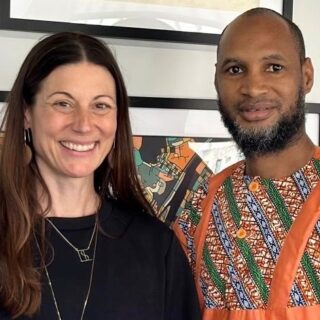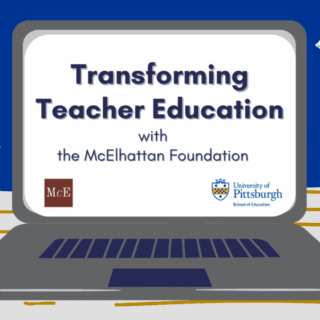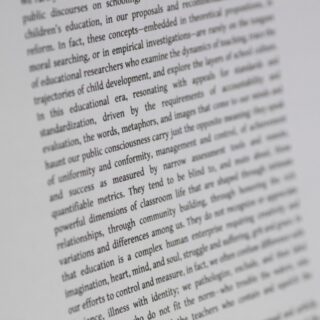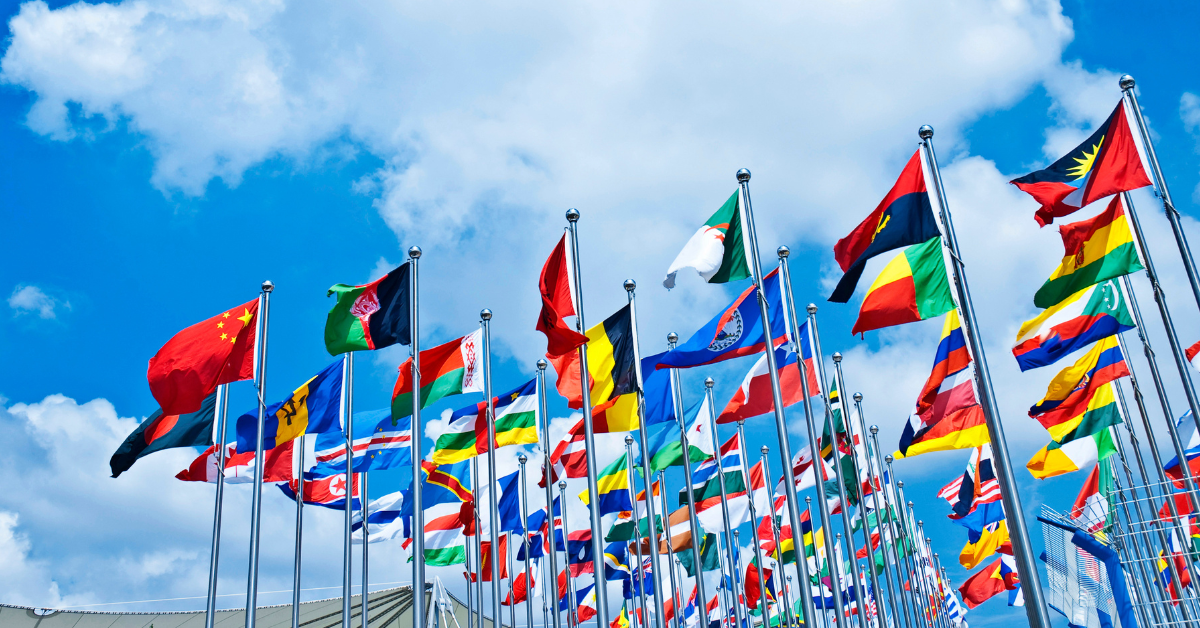
IISE Team Honored by State Department for Language Learning Project
A team from the University of Pittsburgh School of Education’s Institute for International Studies in Education (IISE) received commendation from the United States Department of State for their work to improve language learning among American diplomats.
Led by IISE Director Maureen McClure, the Pitt team used their own language learning expertise and artificial intelligence to generate a list of 3,000 words tailored to foreign service units. This curated vocabulary list, which can be applied to different languages, focused on words crucial for diplomats’ jobs, spanning areas related to politics, economics, security, public health, and site operation.
“People in these roles get moved around a lot, and they are expected to conduct business in the local language,” says McClure. “Not only do they have to learn the language quickly, they have to learn the words that are necessary for their work.”
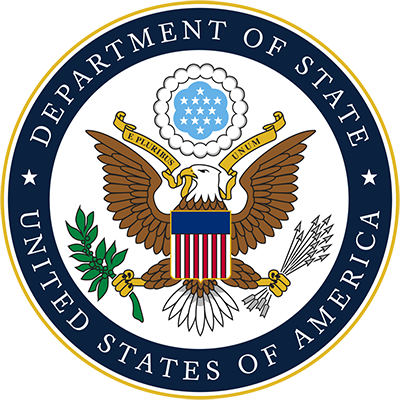 IISE Project Associate Anis Sundusiyah (PhD ‘19) first proposed the project to McClure in fall 2022 after seeing an inquiry from the U.S. Department of State’s Diplomacy Lab, which partners with colleges and universities to conduct research on foreign policy topics. The task was to help the department’s School of Language Studies (SLS) develop a collection of words (or corpus) to be used in functional literacy training for U.S. diplomats stationed at locations all over the world.
IISE Project Associate Anis Sundusiyah (PhD ‘19) first proposed the project to McClure in fall 2022 after seeing an inquiry from the U.S. Department of State’s Diplomacy Lab, which partners with colleges and universities to conduct research on foreign policy topics. The task was to help the department’s School of Language Studies (SLS) develop a collection of words (or corpus) to be used in functional literacy training for U.S. diplomats stationed at locations all over the world.
“Functional literacy is not just the ability to speak and write in a foreign language. It’s also being able to function or perform socially and professionally in that language,” says Sundusiyah, who served as the project coordinator.
In addition to McClure and Sundusiyah, the team included Pitt School of Education faculty member Loretta Fernandez, who provided linguistic expertise, and Bayu Aryoyudanta, a research assistant for the Pitt School of Health and Rehabilitation Sciences who provided generative AI technical support.
The team developed a computational linguistics approach to extract and construct keywords from foreign service documents and public information collected by the IISE and SLS teams. The technique identified high-frequency and essential keywords and phrases that diplomats must learn to do their jobs effectively.
“These approaches enable us to process large volumes of data swiftly and effectively, providing actionable insights that are pivotal for diplomat training and operations,” says Aryoyudanta. “The technology we developed is language-agnostic, meaning it can effectively identify and extract key phrases and terms from documents in multiple languages.”
“One of the important aspects of this corpus is that it gives you the words used in context, not just the word’s meaning. That is something that not all corpuses do,” says Fernandez. “This corpus not only analyzes and understands language but has the specific purpose of being used to make the learning process simpler for diplomats and their instructors.”
According to Sundusiyah, the corpus is a foundational step in improving the intensive language training for foreign-service diplomats.
“The generated top-frequency words, which will be translated into multiple foreign languages, will be part of the whole foreign language curriculum system of the SLS,” says Sundusiyah. “We are excited and humbled to contribute to their learning system development.”
In the commendation letter, SLS Associate Dean Catherine Doughty writes: “The University of Pittsburgh Diplomacy Lab team’s commitment to excellence, collaborative spirit, and innovative approaches will contribute to how United States diplomats learn foreign languages. Their work exemplifies the spirit of the Diplomacy Lab initiative and reflects positively on the university’s dedication to providing experiential learning opportunities for students and faculty.”
McClure says this interdisciplinary project is a shining example of IISE’s mission to fuse research and training in educational development throughout the world.
“One of the central parts of IISE is looking at things that are both local and global, and how we can stitch that together in a way that is meaningful,” says McClure. “This collaborative effort shows that cooperation and teamwork are essential when you’re trying to balance things like technology and linguistics. It also shows how emerging technology can help people rethink basic issues and solve simple but complex problems.”

